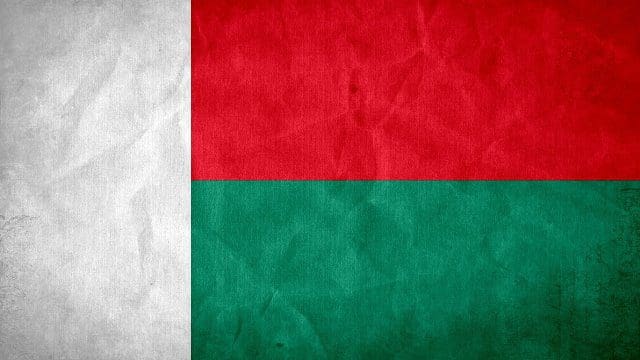The New African Charter International has issued a strong statement supporting Madagascar’s recent military transition while condemning what it describes as French interference in the island nation’s internal affairs following the swearing in of Colonel Michael Randrianirina as president.
Madagascar swore in the army colonel as president Friday, just days after a military takeover following a popular rebellion that sent President Andry Rajoelina fleeing into exile. The transition followed weeks of youth led antigovernment protests that began on September 25, initially expressing anger over water and power outages before expanding to encompass wider grievances over cost of living, poverty and alleged government corruption.
The New African Charter International, a pan African advocacy organization, released a statement Friday expressing support for the Madagascan people’s aspirations while urging international actors to respect the nation’s sovereignty. The group called on the new government to prioritize citizens’ demands and preserve Madagascar’s territorial integrity and dignity.
The United Nations reported that at least 22 people have been killed and more than 100 others were injured during recent mass demonstrations over power and water shortages. The violence prompted intervention by CAPSAT, Madagascar’s elite military unit, which announced it would refuse orders to shoot demonstrators, marking a turning point in the uprising.
“We share the frustration of the people of Madagascar that they had to lose 19 compatriots to restore their lost dignity,” said Alimamy Bakarr Sankoh, Founder and Co-president of NACI, though international sources place the death toll at 22.
The organization’s statement particularly targets what it characterizes as France’s attempts to dictate the African Union’s position on the crisis. NACI urged the AU to engage constructively with Madagascar’s new government rather than imposing sanctions, which it describes as “spurious, diabolic and economic wars designed and clinically executed by foreign powers to destroy national economy.”
The African Union announced Wednesday it would suspend Madagascar from its bodies with immediate effect until constitutional order is restored in the country. The AU suspension came alongside warnings from regional bodies about the unconstitutional nature of the military takeover.
Colonel Randrianirina, who led the CAPSAT unit’s rebellion, told reporters a committee led by the military would rule the country for a period of up to two years alongside a transitional government before organizing new elections. The 51 year old colonel was born in the village of Sevohipoty in the region of Androy and served as governor there between 2016 and 2018.
The transition represents Madagascar’s third military intervention since independence from France in 1960, following coups in 1972 and 2009. President Rajoelina himself first came to power through a 2009 coup aided by the same CAPSAT unit that has now removed him.
NACI’s statement reflects broader debates within pan African movements about sovereignty, democratic governance, and external influence on the continent. The organization argues that while it advocates for peace, justice and human rights in Africa, the immediate priority should be respecting Madagascar’s independence rather than imposing external solutions.
“France’s attempts to dictate the African Union’s position on the current situation in Madagascar is a dangerous political move, which can only degenerate into violence and costly conflicts,” the statement asserted, urging the AU to work toward peaceful de-escalation rather than punitive measures.
The crisis has drawn international attention partly because it reflects broader patterns of youth led protests challenging governments globally. The Gen Z Madagascar movement has drawn inspiration from recent uprisings in countries including Kenya, Indonesia and Peru, with youth led demonstrations unseating governments in Bangladesh, Nepal and Sri Lanka.
Madagascar has high rates of poverty affecting around 75 percent of the population according to the World Bank, with GDP per capita nearly halving between independence in 1960 and 2020. These economic conditions provided fertile ground for the protests that ultimately toppled Rajoelina’s government.
The international response has been measured. French Foreign Minister Jean-Noel Barrot said Thursday that “the transition is now under way” and called for full civilian involvement in the ongoing process, adding that “the mobilisation of Madagascar’s youth must be fully heard to build a sustainable, peaceful and calm” future.
NACI’s position contrasts with statements from the United Nations and Western governments that have condemned the unconstitutional change of government. The organization argues that external actors should prioritize Madagascar’s stability over procedural concerns about constitutional order.
“The African continent must be allowed to remain and be respected as a region of peace, political stability and development,” the statement concluded, warning that escalation could have ripple effects throughout Africa.
The debate highlights tensions between principles of constitutional governance and popular sovereignty when citizens mobilize against governments they view as failing to meet basic needs. Madagascar’s youth took to streets demanding water, electricity and economic opportunity, grievances that transcend political ideology.
Whether Colonel Randrianirina’s military council can address the fundamental challenges that sparked the uprising remains uncertain. The colonel has promised elections in two years, meaning young protesters who inspired the movement may face a lengthy wait before choosing their next leader through democratic process.
For pan African organizations like NACI, the Madagascar crisis represents a test case for how continental bodies respond to popular uprisings that result in unconstitutional government changes. The tension between supporting citizens’ demands for better governance and maintaining institutional norms around democratic transitions remains unresolved.
As Madagascar begins its latest political transition, the international community faces questions about when to support popular movements and when to defend constitutional processes, particularly when those processes have failed to deliver basic services to citizens. NACI’s statement suggests these debates will continue shaping Africa’s political landscape.
Source: newsghana.com.gh











